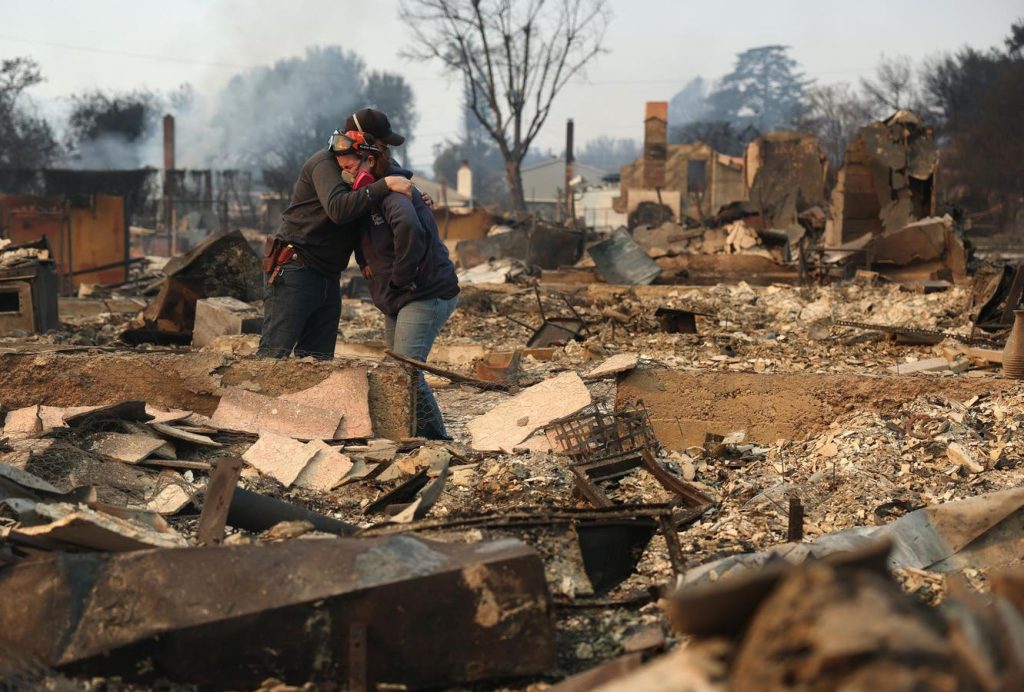Southern California Wildfires Devastate Region, Prompting Massive Evacuation and Urgent Calls for Aid
Southern California is grappling with a devastating series of wildfires that have scorched over 47,000 acres, leaving a trail of destruction and prompting the evacuation of at least 88,000 residents. The largest of these infernos, the Palisades Fire, has consumed over 23,000 acres alone. Fueled by arid conditions and relentless winds, the fires continue to spread, posing a significant threat to lives and property. Tragically, at least 25 lives have been lost as of Wednesday morning, underscoring the severity of this unfolding disaster. Thousands more residents remain under evacuation warnings, bracing for the possibility of having to flee their homes at a moment’s notice. As firefighters battle the relentless flames, a wave of support and aid is mobilizing across the nation.
Navigating the Aftermath: Resources for Those Affected and Ways to Contribute
The widespread devastation caused by the wildfires has left countless individuals displaced and in dire need of assistance. For those directly impacted by the disaster, crucial resources are available. Guidance on navigating tax implications and accessing support from the IRS can be found [here](link to IRS resource), while information on securing low-interest loans is accessible [here](link to loan resource). As communities grapple with the immediate aftermath, the focus shifts towards recovery and rebuilding.
Numerous organizations are actively working to provide relief and support to those affected. The American Red Cross is accepting financial donations through various channels, including online at redcross.org, by phone at 1-800-435-7669, via mail, or by texting CAWILDWIRES to 90999. The California Community Foundation’s Wildfire Recovery Fund, having distributed over $30 million in aid since 2003, is also accepting donations to support housing, case management, mental health services, and medical care for displaced residents.
A Multifaceted Approach to Aid: Supporting Firefighters, Communities, and Animals
Beyond direct aid to individuals, several organizations are focusing on critical aspects of the disaster response. The California Fire Foundation is providing crucial support to families of fallen firefighters, as well as resources for firefighters and the communities they serve. Direct Relief is deploying vital medical supplies to first responders and displaced residents, including respiratory protection equipment to mitigate the health risks of smoke inhalation. Feeding America, in collaboration with the Los Angeles Regional Food Bank, is working to assess the damage and provide essential food assistance where it’s most needed.
The Humane Society’s Animal Rescue Team is on the ground, assisting animals in the hardest-hit areas, and accepting donations to their Emergency Animal Relief Fund. The Los Angeles Fire Department Foundation is raising funds to equip firefighters with essential equipment, including emergency fire shelters, hydration backpacks, and specialized tools. The Los Angeles Food Bank is welcoming both financial donations and food donations at designated distribution centers, as well as seeking volunteers to assist with their efforts.
Navigating Charitable Giving: Ensuring Your Contributions Have the Greatest Impact
For those wishing to contribute, monetary donations are generally the most effective way to support relief efforts. Cash allows organizations to quickly and efficiently procure necessary supplies and services based on evolving needs on the ground. While the impulse to donate goods is understandable, the logistics of handling and distributing in-kind donations can often strain resources during a crisis.
When making donations, it’s crucial to be vigilant and avoid potential scams. Be wary of unsolicited requests, and verify the legitimacy of organizations before contributing. Prioritize established charities with a proven track record in disaster relief. Document your donations thoroughly by obtaining receipts, especially for cash contributions.
Maximizing the Tax Benefits of Your Charitable Giving
For those who itemize deductions, charitable contributions can offer tax benefits. However, it’s essential to ensure donations are made to qualified tax-exempt organizations. The IRS provides resources to verify an organization’s status. Remember to keep detailed records of all donations, including receipts for cash contributions and appraisals for non-cash donations exceeding $5,000. Donating appreciated assets like stock can offer additional tax advantages by avoiding capital gains taxes. Qualified charitable distributions (QCDs) from IRAs can also be a tax-efficient way to donate while satisfying required minimum distributions (RMDs).
Continuing Coverage and Resources
Forbes continues to provide updates and resources related to the Southern California wildfires, offering valuable information on how to help and navigate the aftermath of this devastating event. [Link to Forbes coverage]. As the situation evolves, the collective efforts of individuals, organizations, and government agencies will be crucial in supporting the affected communities and facilitating their recovery.


